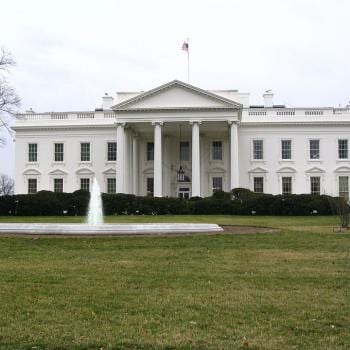Fourth Question (from La Repubblica, Italy):
Thank you, your Holiness. In your speech upon arrival, you say that the church forms Christians, provides moral indications, so that people will make free decisions in conscience. Do you agree with the excommunication given to legislators in Mexico City on the question of abortion?
Pope Benedict XVI:
Yes, this excommunication is not something arbitrary, but it’s part of the Code [of Canon Law]. It’s based simply on the principle that the killing of an innocent human child is incompatible with going in communion with the Body of Christ. Thus, [the bishops] didn’t do anything new, anything surprising or arbitrary. In that light, they simply announced publicly what is contained in the law of the church, and the law of the church is based upon the doctrine and the faith of the church, which expresses our appreciation for life, that human individuality, human personality, is present from the first moment [of life].
Source: John Allen of the National Catholic Reporter
This one question and answer sent the world in a tizzy. It prompted Democrats in Washington to issue a statement. It prompted several commentaries on Canon Law. In the end, it resulted in a retraction of sorts.
What hasn’t really been commented upon is how poor a question this was. Imagine instead if the Pope had been asked whether it was right for the Cardinal of Mexico to demand parishioners offer $5 to the Bishop’s Appeal. One would expect the Pope to answer, “Yes, this [] is not something arbitrary, but it’s part of the Code [of Canon Law].”
One of the easily forgotten things of Pope Benedict’s brief Pontificate is his very strong belief that bishops should be left free to govern their dioceses. The Vatican has brought its weight to bear so far on two matters. Former Bishop Milingo was excommunicated following illicit ordinations, and the Holy See was brought to action for a second time when the Chinese Patriotic Catholic Association ordained two bishops without Holy See approval. This also resulted in excommunication.
There have been other excommunications of course. Several of the women who were ‘ordained’ on rivers have been excommunicated by their ordinaries. While referred to the Holy See, these excommunications were not prompted by the Holy See. Having this history, many still operated under the assumption that Pope Benedict would excommunicate politicians who supported abortion. Such an assumption wasn’t just from folks who called then Cardinal Ratzinger God’s Rottweiler. Such an assumption was shared in pro-life circles. Admittedly some of this traced itself to a letter then Cardinal Ratzinger sent to the American bishops stating that a politician who should not receive communion should not be offered communion. This was a private letter however, and this should have equally been a signal that the Vatican was not going to enter the picture and dictate to the American bishops the standing of various politicians in the American Church.
In the end, my belief is that Pope Benedict was upholding the authority of the bishop. I believe that Pope Benedict believed the reporter when he stated the politicians had been excommunicated by the cardinal archbishop of Mexico. Subsequently, there are a lot of people wanting the Vatican to offer more clarity on this issue. My speculation is that there won’t be more clarity, because this is not a black and white issue. The Mexico City legislator’s support of abortion is fundamentally different than your typical governor’s support of abortion. Certainly more lives are going to be lost in Mexico due to the actions there. Your typical governor’s rhetoric doesn’t really tend to effect whether a woman chooses to abort her child. The actions have disproportionate impact, and reason would suggest any sanctions offered would vary accordingly. Regardless, policy will be made by each bishop individually and in some cases by bishops in conference. We shouldn’t expect the Holy See to offer a blanket solution, be it excommunications or denials of communion.











